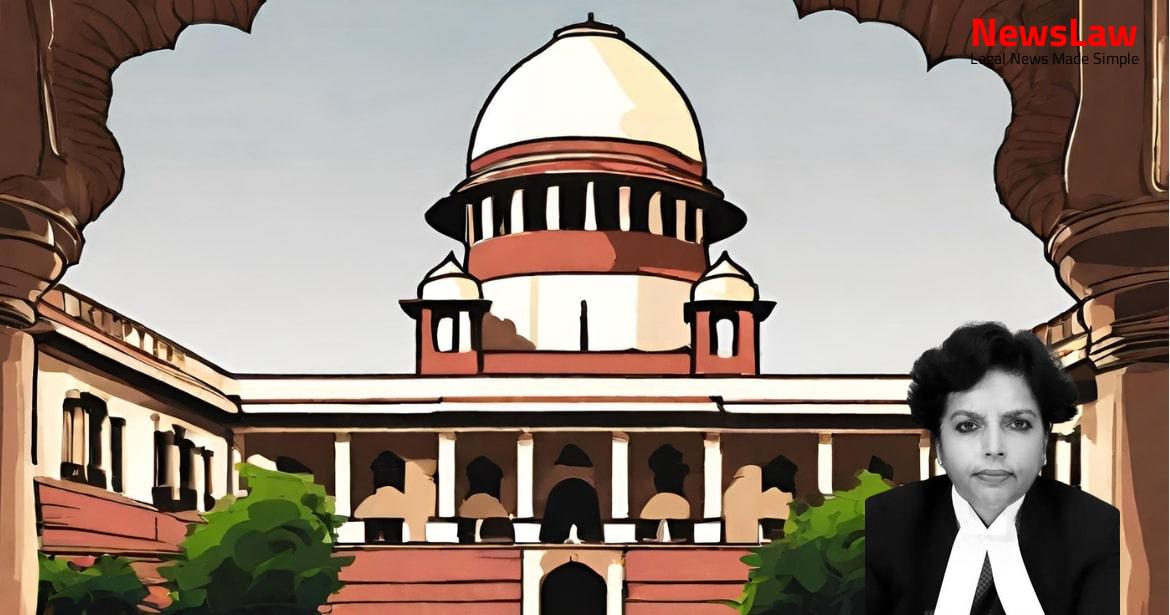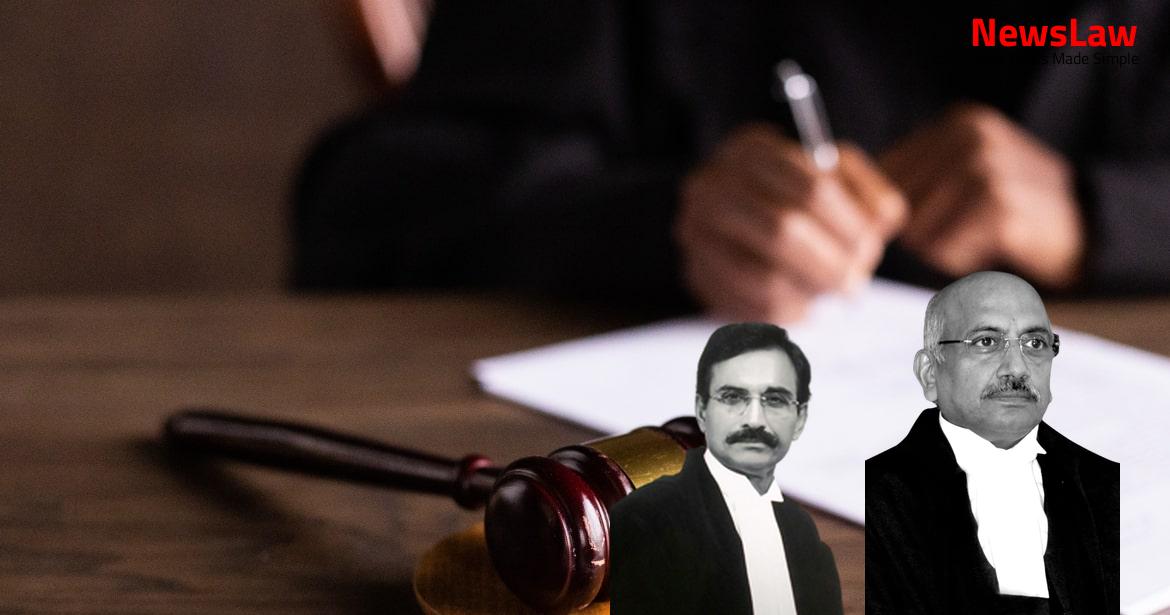In a recent legal case, the High Court’s bail grant without detailed reasoning has come under judicial review. The Court’s analysis delves into the nuances of bail in non-bailable offenses, highlighting the importance of recording reasons for such decisions. The intricate balance between granting and canceling bail in serious criminal cases is explored, shedding light on the need for well-reasoned and non-arbitrary bail orders.
Facts
- The appellant/complainant’s husband, Narain Singh, was shot and killed by the respondent No. 2 and four other accused in a dispute related to the ownership of a school.
- The respondent No. 2 had abducted Narain Singh earlier and was instrumental in planning his elimination while in jail.
- Charges under Section 302 read with 149 and 120B IPC were framed against the respondent No. 2 for the murder.
- The High Court recorded submissions from the respondent No. 2’s counsel opposing his bail application.
- The State’s affidavit highlighted the respondent No. 2’s extensive criminal record with 25 serious cases against him.
- Respondent No.2 hatched a conspiracy with co-accused to shoot down the deceased due to past enmity related to school management.
- Three eye witnesses, including the complainant and his brother, testified against respondent No.2.
- Past history of enmity between deceased and respondent No. 2 considered, including previous complaint of attempted abduction by the deceased against respondent No.2.
- Respondent No.2 had FIRs registered against the deceased under various sections of IPC.
- Sessions Court found respondent No.2 and co-accused guilty under Section 302 read with Sections 149 and 120B IPC.
- Respondent No. 2 and other accused persons appealed the conviction and sentence before the High Court.
Also Read: Time as Essence of Contract in Sale Agreement: Legal Analysis
Arguments
- Learned counsel for the appellant/complainant argued that the High Court did not provide reasons for granting bail to respondent No.2.
- The appellant’s husband was shot dead in broad daylight due to a conspiracy involving respondent No.2 and closely related co-accused.
- The deceased suffered six firearm injuries on instructions of respondent No.2.
- Respondent No.2 is a history-sheeter with involvement in multiple criminal cases.
- The trial court found respondent No.2 guilty under Section 302 read with 149 IPC, indicating sufficient evidence against him.
- The High Court allegedly overlooked these crucial factors when granting bail to respondent No.2.
Also Read: Retirement Age of PTI/Sports Officer in University
Analysis
- Several decisions by the Court have underscored the principles mentioned earlier.
- Reasons for granting bail in non-bailable offenses must be recorded.
- The Appellate Court assesses cancellation of bail based on supervening circumstances or violation of bail conditions.
- Guidelines from various cases are cited for assessing the correctness of bail orders.
- The Court emphasizes the need for reasoned and non-arbitrary bail orders.
- Inconsistent lists of cases against an accused have been highlighted.
- The Court refrains from interfering with High Court bail orders in general.
- The High Court granted bail to respondent No.2 without providing any reasons for the decision.
- The High Court did not consider the common submissions that respondent No.2 is a hardened criminal with numerous serious cases against him.
- Respondent No.2 faces trial in thirty-seven cases, including grave offenses under various laws.
- A bail application by respondent No.2 was rejected by the Additional Sessions Judge in one case, but the High Court granted bail in the same matter.
- The High Court’s actions in granting bail without proper application of mind or consideration of relevant material are subject to interference.
- If additional cases are included, respondent No.2 is involved in fifty criminal cases.
- Distinguishing between considerations for granting bail and canceling bail is crucial for Appellate Courts.
Decision
- The judgment does not express any opinion on the merits of the appeal filed by respondent No.2 against the Sessions Court’s judgment.
- The respondent No.2 is not prohibited from reapplying for bail in the future if new circumstances emerge.
- A copy of the judgment will be sent to the High Court and the concerned Police Station for review and compliance.
- The bail bonds of respondent No.2 are revoked, and he must surrender immediately.
Case Title: MEENA DEVI Vs. THE STATE OF UTTAR PRADESH (2022 INSC 568)
Case Number: Crl.A. No.-000808 / 2022



